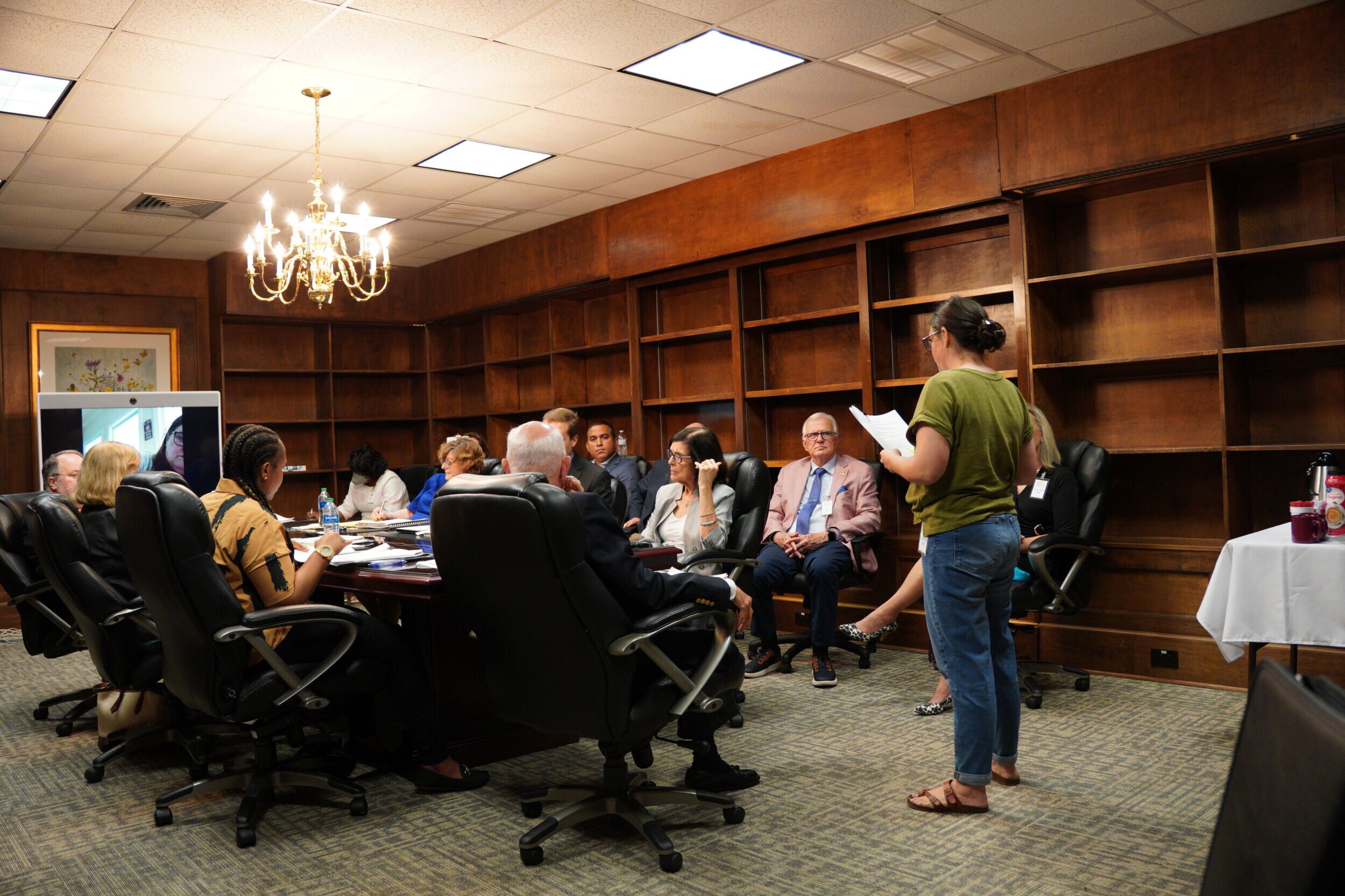MONTGOMERY — State lawmakers and advocates attended a board meeting for the Alabama Public Library Service (APLS) on Thursday to address the statewide issue of sexually explicit children's books making their way into Alabama libraries.
What started as a group of concerned residents over sexually explicit content in children's books in the Prattville library has grown into a statewide effort to remove "obscene" books from Alabama libraries and a state separation from the American Library Association (ALA).
APLS is a state agency with board members appointed by the governor. The board is responsible for selecting the director.
APLS director Nancy Pack recently came under fire for lambasting Prattville parents who oppose the books' inclusion, openly supporting the ALA and saying she had contacted two libraries with scheduled conservative events, which were subsequently canceled.
Becky Gerritson, executive director of Eagle Forum of Alabama, several Clean Up Prattville members, and three Alabama House of Representatives members attended the event.
State Reps. Susan DuBose (R-Hoover), Rick Rehm (R-Dothan) and Bill Lamb (R-Tuscaloosa) attended the event; all said many other members wanted to be there as well. DuBose said several prominent members of the House had taken an interest in the issue.
Hannah Rees and Wil Sanchez with Clean Up Prattville appealed to the APLS board to disassociate entirely from the ALA due to the ALA's continued support for and proliferation of "pornographic" and "obscene" children's books.
Montana recently disassociated from the ALA, and efforts are underway in several other states to do the same.
The ALA is a national non-profit dedicated to improving library systems through advocacy. The ALA promotes Diversity, Equity and Inclusion (DEI) and seeks to "apply a social justice framework to the ALA strategic directions." It has openly supported the inclusion of books that many nationwide find sexually inappropriate for minors.
The ALA recently announced it would distribute $1 million to fight so-called "censorship" in nationwide efforts to exclude certain books from public libraries. It also has a "fight censorship page," which offers financial, legal, and other support to libraries dealing with book challenges.
Sanchez held up "Gender Queer," a book designated for minors, supported by the ALA. Sanchez showed pictures in the book that included depictions of sexual acts. Sanchez also shared ALA's publicized training guidelines on sabotaging conservative or Christian library events, such as blaming fire code standards, as was attempted in the Madison library event last week.
Sanchez also pointed to Pack's claims to have called the two libraries before canceling events.
"This issue of calling libraries to question events and encourage cancellation through fear is a particularly egregious act that needs to be addressed since the person that called has direct access to state funding and its distribution: Mrs. Nancy Pack, the director of APLS," Sanchez said.
When Sanchez attempted to suggest the board consider a new director, he was cut off by District 1 board member Ronald Snider, who told Sanchez to put his recommendation in writing.
Rees detailed a webinar for librarians by the director of ALA's Office of Intellectual Freedom, Debra Caldwell-Stone, that taught how to sabotage faith-based story hours. Rees also distributed information in packets to the board detailing how the ALA fought to prevent content filters on library computers.
Reese also detailed over 150 books from the ALA's "Rainbow Book List," all of which were designed for children, contained sexually explicit content and are in multiple libraries across the state.
After the speakers concluded, Snider suggested that Pack "review the issues and to give us her report" to see "what the issues are, what her recommendations are."
District 5 board member and Alabama GOP chair John Wahl spoke up, saying he wanted to investigate how widespread the ALA's influence was and how many libraries carry sexually explicit books.
"This is extremely concerning to me," Wahl said. "As a man of faith, but more importantly as someone who, it's important for me that we represent the values of the people of Alabama. They have put trust in us."
He continued, "A priority for me is protecting our children from explicitly sexual activity and, if you want to call it woke policies, or whatever you want to call it, I strongly believe that we should let the children be children. It should not be a social agenda or socially engineering our children."
Wahl brought up several ideas for the board to separate from the ALA, such as removing multiple ALA guidelines from the APLS's policies, creating an APLS suggested reading list instead of relying on ALAs, and investigating the recent cancellations of events in Alabama libraries.
"If I'm seeing faith-based organizations that are kept from doing events while we are allowing, say, a drag show in Mobile, I want to know why," Wahl said. "I think that is a fair question for the people of Alabama: why are faith-based groups being denied when other things that would not be in line with Alabama values are being allowed?"
When Ben Albritton, a state attorney with the attorney general's office, said the board would have to clarify its scope of authority in regulating local libraries, the board voted to request an opinion from Attorney General Steve Marshall to clarify the board's authority.
To connect with the author of this story or to comment, email craig.monger@1819news.com.
Don't miss out! Subscribe to our newsletter and get our top stories every weekday morning.









